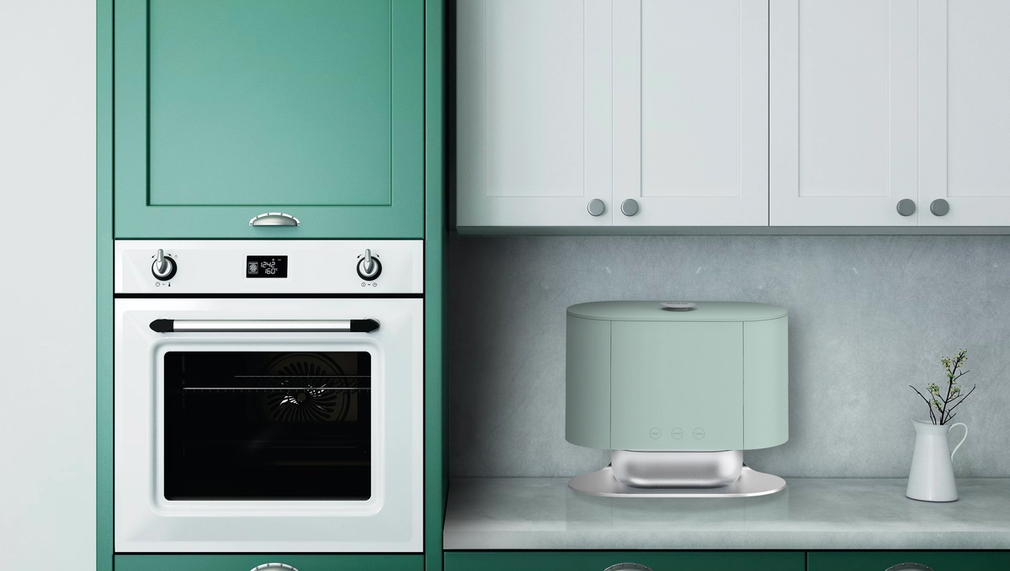Clew: Food Waste Recycling Appliance
Clew is a countertop food waste recycling appliance that can process nearly all residential food waste (including avocado pits and most bones). By using Clew’s unique technology of heating, grinding, and drying, we’re able to achieve a dried soil fertilizer in less than 2 hours. This output is shelf stable and can be stored until gifted, dropped at a collection site, mixed with soil to further process into compost, or put in a green bin.

What is the primary issue area that your application will impact?
Climate and Environment
In which areas of Los Angeles will you be directly working?
County of Los Angeles
City of Los Angeles
In what stage of innovation is this project, program, or initiative?
Pilot or new project, program, or initiative
What is your understanding of the issue that you are seeking to address?
We’re solving the problem of people not having relationships with or an understanding of how to properly respect, manage, and dispose of resources. We’re starting with the massive problem of food waste being disposed of into landfills. With over 40% of food waste (an average of 238 pounds per person per year) occurring in residential settings, Clew is able to stop food waste from entering the waste stream where it releases greenhouse gasses in landfills, and instead turning it into a valuable resource without the traditional food waste recycling obstacles.
Describe the project, program, or initiative this grant will support to address the issue.
There are too many obstacles and frustrations when recycling food waste at the home. Most cities do not offer municipal services, drop-offs are inconvenient, there is a lack of education, home methods like vermicomposting and pile composting are not available or are confusing, and people are too yucked out by food waste living in their freezer or on their countertops. Clew solves all of those frustrations in one device. We turn a chore into a ritual, all in the size of a toaster oven, allowing for food waste recycling to happen in any sized home and for any person’s schedule. We educate compassionately and gently to meet people where they’re at and empower them to get on board with food waste recycling. As cities and states start mandating food waste recycling for all residents, we are a solution for multi-family property developers and those who have not participated in or have given up on food waste recycling due to the above.
Describe how Los Angeles County will be different if your work is successful.
Food waste reduction is the #1 most effective solution to reducing climate changing carbon according to a report from Project Drawdown. American households send more food to landfill than in any other part of the supply chain, where it rots and releases greenhouse gasses into our atmosphere that cause climate change. According to an article from the LA Times, LA County alone generates about 1.9 million tons of food waste per year that has the potential to be diverted. It would take a dozen anaerobic plants to process it all at a projected cost of $840 million. Ultimately, we would be preventing roughly 28 million tons of CO2e from entering the atmosphere per year.
What evidence do you have that this project, program, or initiative is or will be successful, and how will you define and measure success?
We will be measuring success based on feedback from our 100 households participating in our pilot program. Clew wants to see that our device is a solution that users can seamlessly integrate into their lives and provide them a meaningful solution for their food waste and ultimately climate change. We would take the feedback provided and incorporate before moving into manufacturing the Clew device.
Approximately how many people will be impacted by this project, program, or initiative?
Direct Impact: 4,000
Indirect Impact: NaN